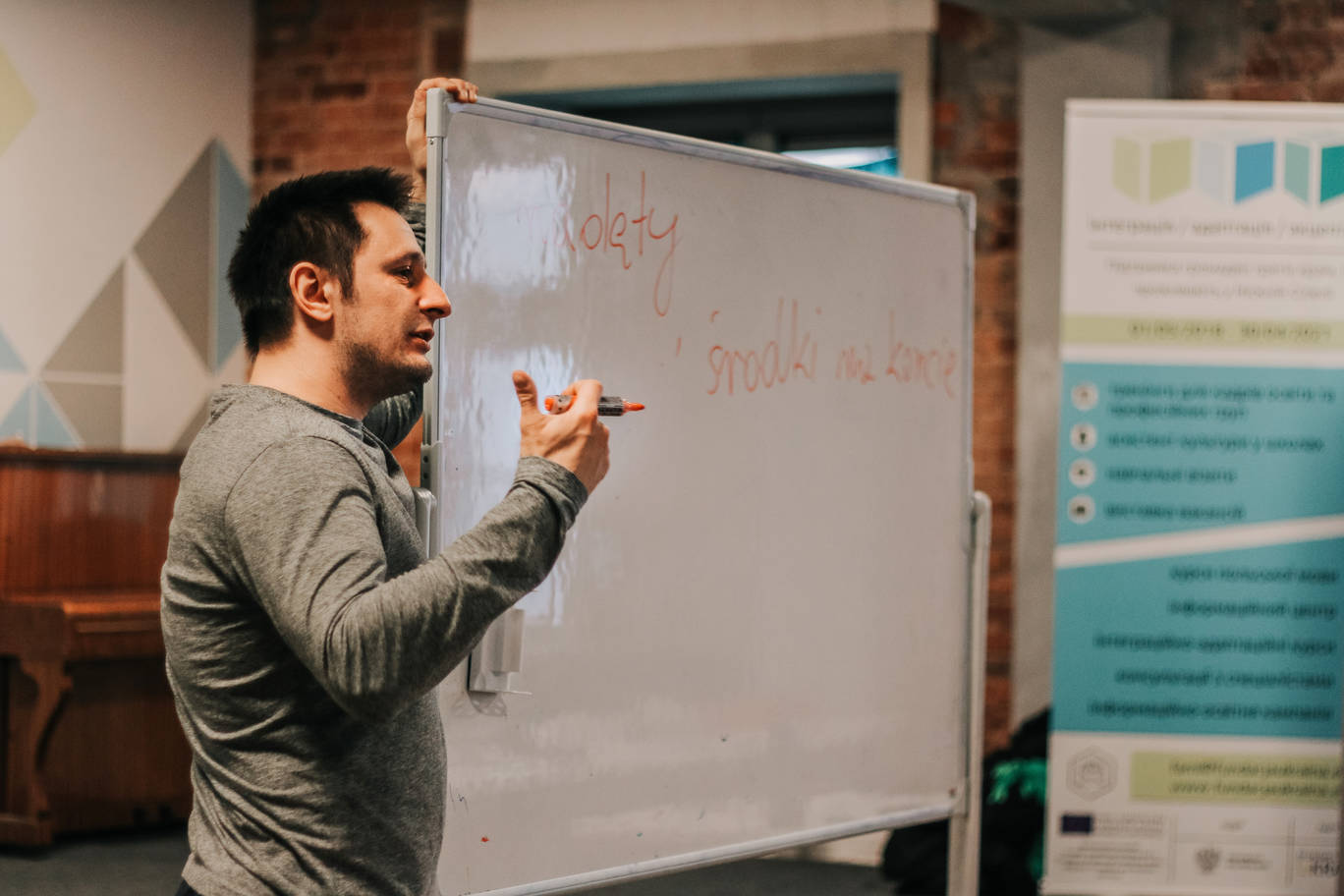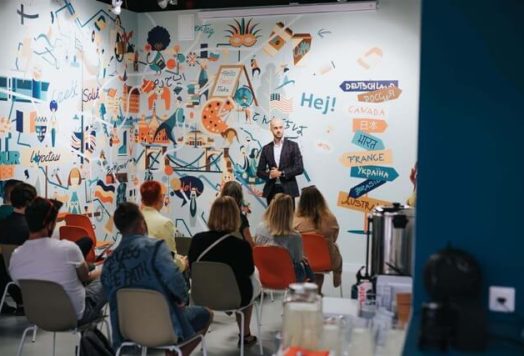The new academic year is approaching, which means that many students will soon begin their path in search of the perfect place to study. The Foundation Ukraine together with an expert in international education – Anna Ovcharenko prepared an article-guide, that will facilitate the recruitment of foreign candidates to Wroclaw universities and answer the most popular questions among future students.
Wrocław is a modern European educational center where people from different parts of the world get the education and improve their professional skills. There are about 30 public and private universities in Wrocław, each of them offers a high-level education and a European diploma after graduation, which is recognized in the European Union, and the price for studies is much lower than in other EU countries. Besides, Wroclaw public and private universities have a rich educational offer.
Here are 9 most known public universities in Wrocław
Wroclaw University of Science and Technology (technical and IT faculties). Online registration starts from May 15 to October 1.
Wroclaw University (humanity, science, and technology fields). Online registration started on May 15. This year admission deadlines and exams will be adapted to the dates of announcing to the maturity exams.
Wroclaw University of Economics (economic, IT, management, and transport faculties), the decision about admission timelines will be published later.
Wroclaw University of Environmental and Life Sciences (economics, architecture, biosciences) announced admission registration on May 1. The university will keep you informed about planning deadlines.
The Karol Lipinski Academy Music in Wroclaw (music art) started registration on 1 April, the exam calendar will be set later.
The Eugeniusz Geppert Academy of Art and Design (art, graphics, design, sculpture) duration recruitment process is from May 15 until 30 June.
University School of Physical Education in Wrocław (physical education, physiotherapy, sport sciences) recruits from June 1 to September 30.
Wroclaw Medical University (medicine, pharmacy, medical sciences) has opened the registration system from February 24 to July 5.
General Tadeusz Kościuszko Military University of land forces (security studies, management, command institute) enrollment process on civil studies will start from June 6 to 27 July. The required level of Polish is the C1 level.
In general, Wroclaw’s universities are necessitating Polish and English language proficiency at B2 level (general intermediate) and higher.
The most popular Wroclaw private universities are:
University of Lower Silesia (culture, education, social sciences, and journalism) recruitment process has been run from 25.03 to 16.10.
Evangelical School of Theology (theology sciences) in Wroclaw will start the recruitment process from June 7 to October 10.
The International University of Logistics and Transport in Wroclaw (logistic, management) enrolment to university will start from June 6 to 25 September.
WSB University in Wroclaw (management and information technologies), the application form is available from March 25 to October 16. The educational offer (English, German, Italian, Spain languages) of the Philological School of Higher Education will be transferred to WSB University in October.
The admission process at the University of Business in Wrocław (management, computer sciences, and logistics) began on the 4th of May and will be continued until September 30.
University of Law (law and internal security), the recruitment process lasts from the 4th of May to the 30th of September.
Enrolment on studies at the College of Management “Education” in Wroclaw (management, computer sciences, pedagogy) began at 1th of May and lasts until 23th of October.
Compared to public universities, required level B1 of knowledge Polish and B2 of English.
How does the recruitment process go?
I step is the choice of university, preparing documents, an apostille stamp on all graduated documents (maturity certificate, diplomas with appendices).
What is an apostille? Apostille is a stamp confirming the legality of documents with the signature of the person who issued this document. Documents without apostille do not have legal force in Poland.
Each candidate should collect the set of documents:
- original and translation of the maturity certificate or bachelor’s diploma,
- original and translation of the medical certificate,
- English or Polish language certificate at the level required by the university,
- photo 3.5×4.5
II step- online registration. Each university has its own candidate registration system. The candidates set up their own account on the system, fill in all forms and upload requested attachments to the system, select the study courses and pay the registration fee.
III step – exams. At universities from foreign candidates required to take the Polish language exam. This test can be performed in one stage (Skype conversation) or two stages (Skype conversation with grammar exam). Depending on the field you can take additional exams.
For example, portfolios and drawing exams (architecture, design) are required for artistic faculties. In medical schools, you must pass additional biology, chemistry, and physics exams.
III step – to make a visa based on a decision from university.
Can I study in English?
Yes. Each university ensures a study in English. You must confirm your English with an international certificate B2 level or higher. However, for studies in English paid both Poles and foreigners. Usually, the tuition fee is slightly higher compared to studies in Polish and ranges between 2000 and 4000 euros per year.
Can I study in Wroclaw free without a Pole’s Card?
Yes. Every year you have more and more opportunities to get free studies in Poland. Until now this possibility had only foreigners with polish origin (Pole’s cardholders). Currently apply for a free studies may also be persons who: have a permanent residence card; are refugees; are married to a Polish citizen; qualified persons for a scholarship programs or initiatives offering free studies.
However, in 2019 there is a possibility of studying free provided having a language certificate at C1 level issued by the State Commission for the Certification of Proficiency in Polish as a Foreign Language.
What are the scholarship initiatives and programs?
Poland offers a whole range of scholarship programs (also for people without Pole’s card): from state-funded programs (usually financed by the Ministry of Science and High Education) till initiatives offering by local institutions (city governments, public academic centers etc)
One of these local initiatives is the “Study-in-Wroclaw’. It is the first non-commercial polish program initiated by the city and Wroclaw universities in 2006.
The second initiative is Wroclaw Academic Hub, which implements innovation projects supporting collaboration between high education, science, business and local government in order to use the university’s potential for the development of Wroclaw.
The third initiative is scholarship programs and grants. Most of these programs are implemented by Polish Agency for Academic Exchange, which spreads the offers of Polish universities, promotes academic exchange and polish high education and language at international level. The Agency implements programs among Polish and foreign students, scientists and PhD students.
This category also include scholarship programs funding by other government entities:
Study Tours to Poland – the program under which they are carrying out study visits for students and young experts from the countries of Eastern Europe and Central Asia, which relate to the exchange of experiences in the field of free-market and democratic transformations, building the rule of law, strengthening local communities and civic initiatives.
Gaude Polonia – is a six-month stay in Poland of artists from Central Europe (mostly Belarus and Ukraine), during which they implement their projects under the supervision of guidance Polish artists and cultural institutions, in cinematography, music, theater, literature, photography, museum and visual art fields.
Are there any language preparation courses?
Yes. There are three universities, which offer such courses: University of Wrocław, Wrocław University of Technology, Wrocław University of Environmental and Life Sciences, University of Business in Wrocław
Usually, the courses focus on learning the Polish language: grammar, vocabulary, learning to write different types of texts, preparing to take notes during lessons. Universities also take care of integration into the Polish environment (visiting museums, theaters and cinemas).
Some colleges offer additional specialized vocabulary courses that will be related to a future major or provide specific subject classes (for example, chemistry, biology, computer science, etc.) depending on the direction and needs of the participants.
How much does it cost to study in Wroclaw?
Typically, the university’s pricing policy depends on whether the university is public (from 2000 euro per year) whether is private (from 800 euro to 3500 euro per year), on the field of study (for example, medical studies with specialization in surgery or dental fluctuate within 8000 -12000 euro per year, artistic faculties – 6000 euro).
Also the price for foreigners depends on the student’s citizenship – the cost of studies for Ukrainians Georgians, Belarus, Kazakhs, Russians will be different than for EU citizens or African countries.
We invite candidates from abroad and their parents to contact the Foundation Ukraine if you have any questions about recruitment and everyday life in Wroclaw.
You will find us on social medias:
Facebook: https://www.facebook.com/CUKR.Wroclaw/ and https://www.facebook.com/fundacja.ukraina/
Instagram: https://www.instagram.com/cukr.wroclaw/
You Tube: https://www.youtube.com/channel/UCS9Afcq5gYybQwMTOvfeGXg.

Bezpieczna przystań
Projekt reSTART jest współfinansowany z Programu Krajowego Funduszu Azylu, Migracji i Integracji oraz budżetu państwa
Wyłączna odpowiedzialność za wyrażone opinie spoczywa na autorze i Komisja Europejska oraz Ministerstwo Spraw Wewnętrznych i Administracji nie ponoszą odpowiedzialności za sposób wykorzystania udostępnionych informacji





